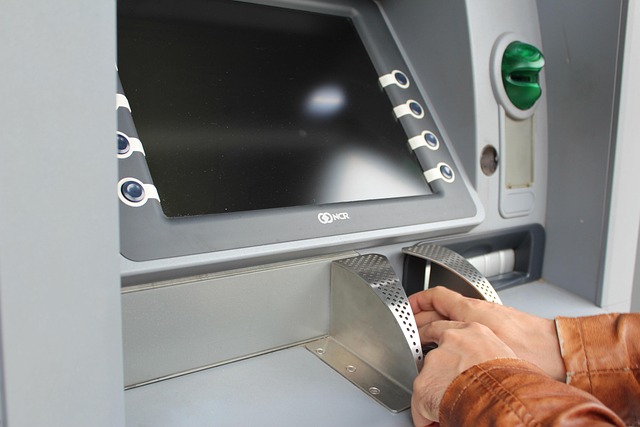Car title loans offer a debt relief solution by using vehicle equity as collateral. Individuals consolidate multiple high-interest payments into one low-interest loan. Assess your car's value for terms and eligibility. Reputable lenders provide competitive rates after document application. Negotiate loan terms fitting repayment capabilities to manage debts effectively.
Struggling with high-interest debts? Consider a car title loan as a viable option for financial relief. This article guides you through the process of using a title loan for debt consolidation, offering a clear path to financial stability. First, understand how these loans work and their benefits. Then, learn how to evaluate your vehicle’s value for loan eligibility. We provide a step-by-step plan, showing you how to consolidate debts effectively with a car title loan as a strategic tool.
- Understanding Car Title Loans for Debt Relief
- Evaluating Your Vehicle's Value for Loan Eligibility
- Consolidating Debts: A Step-by-Step Guide Using Title Loans
Understanding Car Title Loans for Debt Relief

Car Title Loans for Debt Relief offer a unique financial solution for individuals seeking to consolidate and manage their debts. This alternative financing method allows borrowers to use their vehicle’s equity as collateral, providing them with a substantial amount of money in a relatively short period. The process is straightforward; it involves applying for a loan by submitting your car title, which serves as security for the lender. Once approved, you’ll receive a lump sum to pay off existing debts, providing much-needed relief from multiple monthly payments.
Unlike traditional loans that might be out of reach for those with bad credit, Car Title Loans in San Antonio are accessible to more borrowers due to their lenient approval criteria. Lenders typically focus on the value of your vehicle and its condition rather than your credit history, making it an attractive option for those with less-than-perfect credit looking for same-day funding. This method can simplify debt management by transforming multiple high-interest payments into a single, more manageable loan.
Evaluating Your Vehicle's Value for Loan Eligibility

When considering a car title loan for debt consolidation, evaluating your vehicle’s value is a crucial first step. This process determines not only your potential loan amount but also your eligibility. Lenders assess the market value of your vehicle and compare it against outstanding loans or liens to establish a clear lending limit. In many cases, Houston Title Loans or Fort Worth Loans providers offer competitive rates based on the current condition and make and model of your car. If you own your vehicle outright, with no existing loans, this can significantly increase your loan-to-value ratio, making emergency funding more accessible.
The assessment process involves a thorough inspection and appraisal, ensuring that the loan amount aligns with the vehicle’s worth. This transparency is beneficial for borrowers as it allows them to understand their financial options better. By knowing the potential value of your car, you can make informed decisions about managing your debts effectively through debt consolidation strategies facilitated by title loans.
Consolidating Debts: A Step-by-Step Guide Using Title Loans

Debt consolidation is a strategic approach to managing multiple debts by combining them into one loan with a potentially lower interest rate. Using a car title loan for debt consolidation can be a viable option for those looking to streamline their repayment process. Here’s a step-by-step guide on how it works:
1. Assess Your Financial Situation: Begin by evaluating your current debts, interest rates, and repayment terms. This step is crucial as it helps determine if a title loan offers better terms than your existing loans. Consider the title loan process and how it compares to your current borrowing options in terms of loan approval time and requirements.
2. Determine Your Car’s Value: For a car title loan, your vehicle’s equity is used as collateral. You’ll need to establish its current market value. This step involves gathering relevant information, such as the make, model, year, mileage, and overall condition of your car. A clear understanding of your car’s worth will help you borrow against it responsibly.
3. Locate a Reputable Lender: Research and choose a licensed lender offering title loans in your area. Ensure they have a transparent loan approval process and competitive rates. Check reviews and compare terms to find the best fit for your situation.
4. Apply for the Loan: Submit an application providing details about your vehicle, financial history, and income. The lender will perform a credit check as part of their evaluation. Be prepared with necessary documents, including your car’s registration, proof of insurance, and recent pay stubs.
5. Negotiate Terms: Once approved, review the loan offer carefully. Negotiate interest rates, repayment terms, and any additional fees. Understand the entire title loan process, from borrowing to repayment, to ensure you’re comfortable with the conditions.
A title loan for debt consolidation can be a strategic move towards financial freedom, providing access to immediate funds to pay off multiple debts. By understanding your vehicle’s value and following a step-by-step guide, you can navigate the process effectively. Remember, while this option offers relief, it comes with conditions; ensuring you meet repayment terms is crucial to avoiding further financial strain. With careful evaluation and planning, debt consolidation through a car title loan can be a powerful tool for managing your financial obligations.






